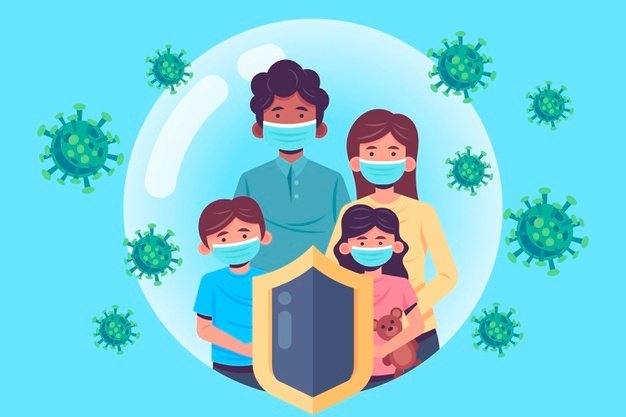Table of Contents
The World Health Organization (WHO) has reported a new variant of the SARS-CoV-2 virus called Omicron. It was detected in Botswana on November 24, 2021, and was subsequently classified as a Variant of Concern (VOC) on November 26, 2021. The first confirmed case of the Omicron virus emerged in the United States on December 1, 2021. And global collaborations with industry and public health partners are helping populations learn about and monitor the course of the VOC. Research is currently underway on how the VOC spreads, what is the severity of the illness after diagnosis, and whether medications and vaccinations will prove effective against it.
SARS-CoV-2 variant – what do we know?
The emergence of the new Omicron variant has resulted in widespread concern and anxiety. With inoculations already administered to a significant portion of the population, the question remains – do these vaccinations work against the new VOC?
1. How does the Omicron variant spread?
Research shows that this variant is likely to spread significantly faster as compared to the original virus. It spreads even faster than the Delta variant, which emerged earlier this year. Similar to the original strain, this virus is airborne and can spread via close contact with infected persons. The CDC (Centre for Disease Control) has expectations that a patient diagnosed with the Omicron variant will be able to easily spread the virus to those around them.
2. Is the illness more severe in comparison to the original strain?
Research is continuing on the severity of the SARS-CoV-2 variant and its impact on the health of the infected person. From breakthrough infections to reinfections in fully-vaccinated people, studies aim to answer all public concerns on the virus. According to experts, it is too soon to comment on its severity, but early data does show mild illness.

3. Do vaccinations work against the Omicron variant?
Close to 56.6 percent of the global population has undergone vaccination against the original COVID-19 virus. This accounts for more than 4.34 billion people across the world.
Studies have revealed that current vaccinations may be able to prevent and protect against the severity of illness. Medical emergencies and deaths can also be significantly minimized. However, it is also highly likely that breakthrough infections can occur in individuals who are fully vaccinated.
Since vaccinations have proved effective against variants like Delta, there is hope that adequate protection will be provided against the VOC as well. Moreover, the emergence of this variant has only served to reinforce the importance of receiving vaccinations and subsequent boosters for the global population.
The effect of Omicron on the education system
The most significant impact of the COVID-19 pandemic was on the global education system. Let’s see how this new variant will affect the education system
1. Schools
As of now, schools and colleges have begun bracing themselves for another pandemic. With a large amount of the population feeling comfortable going outdoors, COVID-19 cases have begun to steadily rise, giving education officials a cause for concern.
Additionally, research by the CDC shows that most adolescents between the ages of 12 to 17 years have undergone full vaccination. But 15% of children between the ages of 5 to 11 years have not received a single dose of the vaccination. There are also no approved vaccinations for children below 5 years of age.
As a result of these statistics, it is evident that herd protection is not likely and the vaccinations may not be able to prevent individual outbreaks of the Omicron variant. Additionally, since most professionals are seeking work-from-home job opportunities, virtual training on the education front is quite likely.
Schools are, however, set to remain open for now. There will be extra days off in a week and students below a certain age will continue with their online education to prevent a surge of cases.
2. Colleges
For colleges, on the other hand, public health concerns are significantly amplified by the large number of students living together. Additionally, continual movements on and off-campus can be a major cause of worry. Most colleges will therefore reinforce precautionary measures that students will have to take while they’re on campus.

Additionally, there may be a slow and steady, step-by-step opening of campuses across the world. This will allow students to resume their classroom training in batches, while the spread of the Omicron variant is under close observation.
Students who have undergone complete inoculation may resume education on campus earlier than the rest. The policies for schools and colleges across the globe, however, will vary depending upon country-wise response to the variant.
3. Education abroad
A number of surveys reveal that there is a strong desire among students to study abroad. The surveys, however, have also highlighted a significant increase in the uncertainty of students around their plans to study abroad. With restrictions on travel, there is a minute percentage of the student population that plans to postpone opportunities for education abroad.
Until further research on the effects of the Omicron variant, the impact on the education system abroad remains uncertain. Schools and universities abroad may consider altering their current approach to students’ education. These include implementing rules for vaccinations and precautions that best protect the health and wellbeing of students.
Key takeaways
- The new VOC has caught the world off-guard, raising concerns around a significant potential impact on the global economy and educational infrastructure.
- Research is currently underway on the effects of this new variant and if vaccinations prove effective in combating it.
- Several restrictions are already in place on schools and colleges across the world. Institutions may adopt different strategies to create herd immunity in the student population against the new variant.
- Restrictions on traveling abroad for education remain effective until further research can produce the right strategies to combat the effects of the variant.
FAQs
Q1. What are the symptoms of the Omicron virus infection?
Answer – The symptoms of the Omicron variant include loss of smell and taste, tiredness, cough, and fever. Less common symptoms include skin rashes, diarrhea, headaches, and sore throats.
Q2. What are some precautionary measures against the Omicron variant?
Answer – One of the best precautionary measures to take against the virus includes wearing a mask while out in public. If you are have been infected with COVID-19, it is recommended that you take a test to determine the strain of the virus.
Q3. Will a new vaccine be required for this variant?
Answer – As of now, experts are testing the effectiveness of the already available vaccines against the new virus strain.






